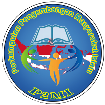Pengembangan Masyarakat melalui Pemecahan Masalah Lingkungan oleh Pesantren di Mertapada Kulon
(1) IAIN Syekh Nurjati Cirebon
(*) Corresponding Author
Abstract
Keywords
Full Text:
PDFReferences
Aboejoewono, A. (1985). Pengelolaan Sampah Menuju ke Sanitasi Lingkungan dan Permasalahannya. Jakarta: Wilayah DKI Jakarta Sebagai Suatu Kasus.
Alex, S. (2012). Sukses Mengolah Sampah Organik Menjadi Pupuk Organik. Pustaka Baru Press.
Ali, S. (2013). Prediksi perilaku ramah lingkungan yang dipengaruhi oleh nilai dan gaya hidup konsumen. Jurnal Perspektif Bisnis, 1(1), 112–125.
Boucher, J., & Billard, G. (2019). The challenges of measuring plastic pollution. Field Actions Science Reports. The Journal of Field Actions, Special Issue 19, 68–75.
Carrington, M. J., Neville, B. A., & Whitwell, G. J. (2010). Why ethical consumers don’t walk their talk: Towards a framework for understanding the gap between the ethical purchase intentions and actual buying behaviour of ethically minded consumers. Journal of Business Ethics, 97, 139–158.
Cossu, R., & Lai, T. (2015). Automotive shredder residue (ASR) management: An overview. Waste Management, 45, 143–151.
Dangelico, R. M., & Pujari, D. (2010). Mainstreaming green product innovation: Why and how companies integrate environmental sustainability. Journal of Business Ethics, 95, 471–486.
Davies, A. R., & Rettie, R. (2015). I don’t think it will catch on": Older people’s perceptions of sustainable fashion. International Journal of Consumer Studies.
Denzin, N. K., & Lincoln, Y. . (2005). Introduction: The Discipline and Practice of Qualitative Researc. In Handbook of Qualitative Research. Sage, Thousand Oaks.
Dias, S. M., Kumar, M., Singh, R. K., & Ferreira, G. (2020). Community-based municipal solid waste management: A case study of Ranchi Municipal Corporation, Jharkhand, India. Resources, Conservation and Recycling.
Fan, P., Chen, J., & John, R. (2016). Urbanization and environmental change during the economic transition on the Mongolian Plateau: Hohhot and Ulaanbaatar. Environmental Research, 144, 96–112.
Fan, P., Ouyang, Z., Nguyen, D. D., Nguyen, T. T. H., Park, H., & Chen, J. (2019). Urbanization, economic development, environmental and social changes in transitional economies: Vietnam after Doimoi. Landscape and Urban Planning, 187, 145–155.
Griskevicius, V., Tybur, J. M., & Van den Bergh, B. (2010). Going green to be seen: status, reputation, and conspicuous conservation. Journal of Personality and Social Psychology, 98(3), 392.
Hartmann, P., Apaolazaâ€Ibáñez, V., & D’Souza, C. (2013). Green, bigger, better? Exploring the green luxury car market. Psychology & Marketing.
He, P., & Song, L. (2018). Research on community participation in the establishment and operation of waste banks: A case study of China. Waste Management.
Kelley, H. H., & Thibaut, J. (1978). Interpersonal relations: A theory of interdependence. Wiley.
Kurniawan, A. (2018). Metodologi Penelitian Pendidikan. Rosdakarya.
Miles, M. B., & Huberman, A. . (1992). Analisis Data Kualitatif. Diterjemahkan oleh Tjetjep Rohendi Rohidi. UI Press.
Rodic, L., Wilson, D. C., & Münz, S. (2010). Community-Based Solid Waste Management Initiatives in Developing Countries. World Bank Urban Development Series: Knowledge Papers.
Silva, P. S., & Costa, L. (2019). Greening the waste: The importance of recycling to the environment. Resources, Conservation and Recycling.
Smith, S., & Paladino, A. (2010). Eating clean and green? Investigating consumer motivations towards the purchase of organic food. Australasian Marketing Journal, 18(2), 93–104.
Stein, B. S. (1993). The IDEAL problem solver: A guide for improving thinking, learning, and creativity. WH Freeman.
Sucipto, D. (2012). Teknologi Pengolahan Daur Ulang Sampah. Gosyen.
Thøgersen, J. (2006). Norms for environmentally responsible behaviour: An extended taxonomy. Journal of Environmental Psychology, 26(4), 247–261.
Troschinetz, A. M., & Mihelcic, J. R. (2009). Sustainable recycling of municipal solid waste in developing countries. Waste Management.
Widjaya, E. R., & Thokozani, S. (2018). The role of community-based solid waste bank in support of waste recycling and composting in Indonesia. Procedia CIRP.
Wilson, D. C., Velis, C., & Cheeseman, C. (2006). Role of informal sector recycling in waste management in developing countries. Habitat International, 30(4), 797–808.
DOI: 10.24235/empower.v8i2.14790
Article Metrics
Abstract view : 57 timesPDF - 12 times
Refbacks
- There are currently no refbacks.
Copyright (c) 2026 Empower : Jurnal Pengembangan Masyarakat Islam

This work is licensed under a Creative Commons Attribution 4.0 International License.
 Empower : Jurnal Pengembangan Masyarakat Islam
Empower : Jurnal Pengembangan Masyarakat Islam















